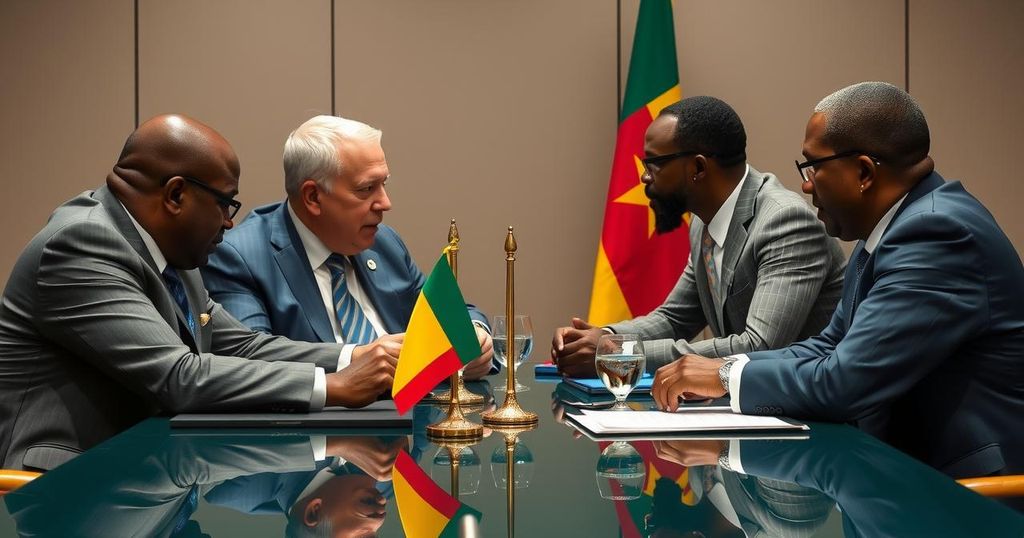Mozambique is experiencing a political crisis following allegations of electoral fraud after Daniel Chapo was declared winner of the recent election. With protests leading to over 110 deaths, South African mediators are engaging with Mozambican officials to seek resolution. An upcoming ruling from the Constitutional Council on the disputed election is critical, amid concerns over state institution credibility and the effectiveness of regional mediation by organizations like the SADC.
As Mozambique faces a critical political crisis, regional mediation hopes are being placed in South Africa after the Southern African Development Community (SADC) failed to reach a resolution during a recent summit in Zimbabwe. South African ministers are engaged in discussions with their Mozambican counterparts in Malelane, focusing on formulating a framework that could pave the way for a sustainable solution. The unrest ignited when Daniel Chapo of the ruling Mozambique Liberation Front (Frelimo) was declared the election winner amidst accusations of rampant vote rigging by his opponent, Venancio Mondlane. With violence escalating, leading to over 110 deaths since protests erupted in late October, the efforts of both neighboring countries and regional institutions are deemed crucial in navigating a path forward. Experts suggest that genuine mediation is essential, and while South Africa’s engagement marks a positive step, there is skepticism about the SADC’s efficacy in these talks. The judiciary also comes under scrutiny, as the upcoming ruling from the Constitutional Council on the disputed election holds significant weight in shaping Mozambique’s political landscape.
The political crisis in Mozambique emerged following the proclaimed victory of Daniel Chapo in the recent elections held on October 9, amid severe allegations of electoral malpractice. The resulting protests have drawn considerable attention as rights groups report violent crackdowns by government forces. The need for mediation stems from a historical context where regional actors have previously played effective roles in resolving political disputes across Africa, notably in Zimbabwe and Kenya. The credibility of Mozambican state institutions and the role of external mediators such as South Africa and the African Union have now gained prominence in the discussions surrounding a potential way forward for the nation.
In conclusion, Mozambique is at a critical crossroads, grappling with a power struggle that has resulted in violence and civil unrest. The mediation efforts, particularly those led by South Africa, represent a potential pathway to peace and stability. However, the effectiveness of these talks relies heavily on transparency around the electoral process and reforms within state institutions. Until genuine engagement and resolutions are achieved, the unrest may persist, fueled by broader issues of governance and citizen dissatisfaction in the region.
Original Source: www.aa.com.tr






